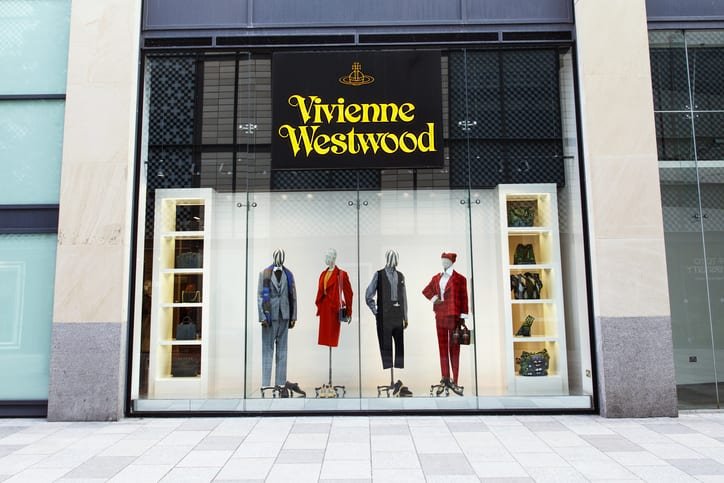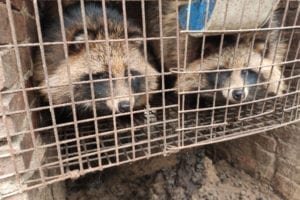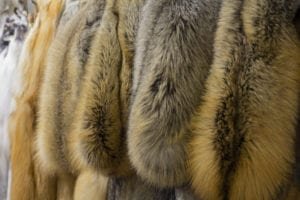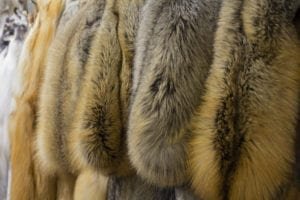The British public can support the campaign by signing the #FurFreeBritain petition here.
Fur-free designers
Recent years have seen a tremendous growth in the number of fashion designers dropping real animal fur from their collections.
Some of the world’s best-known fashion labels that have adopted fur-free policies include Armani, Hugo Boss, Prada Group (Prada, Miu Miu, Church’s), Burberry, Versace, Gucci, Chanel, Coach, Donna Karan, Michael Kors, Jimmy Choo, Diane von Furstenberg, Columbia Sportswear, Farfetch, Net-a-Porter, Timberland, The North Face, Zara, Nordstrom, Macy’s and Bloomindale’s.
Fur farming
More than 1,500 brands have signed up to the Fur Free Retailer scheme. The most recent brand to do so was adidas, joining the likes of H&M, Jack Wolfskin, Lacoste, Mango, Marks & Spencer, Mulberry, Next, The North Face and Zara.
More than 100 million animals are killed for their fur every year worldwide including mink, fox, raccoon dog, chinchilla and rabbit – that’s equal to three animals dying every second, just for fur.
Fur farming has been banned across the UK since 2003, and has been banned and/or is in the process of being phased out in Austria, Belgium, Bosnia-Herzegovina, Czech Republic, Croatia, Macedonia, the Netherlands, Norway, Luxembourg, Serbia, Slovakia and Slovenia.
Most recently the government in Hungary declared a ban on the farming of animals for fur including mink and foxes, France committed to phase out mink farms by 2025, and the Irish government made a commitment to bring forward legislation in 2021.
Bulgaria, Estonia, Lithuania, Montenegro, Poland and Ukraine are also presently considering bans on fur farming, and in Finland the majority party of the coalition government just announced its support for a ban on fur farms.
In the United States, California became the first US state to ban fur sales in 2019 following similar bans in cities including Los Angeles, San Francisco, Berkeley and West Hollywood. Legislators in Rhode Island, Oregon, Connecticut, Hawaii, New York and Massachusetts have introduced fur sales ban proposals. A bill introduced in Washington State would ban the production of fur.
Mink on more than 420 mink fur farms across 11 countries have been found to be infected with Covid-19, leading to mass culls in several countries.
The potential for zoonotic disease spread, and for mink fur farms in particular to act as reservoirs for coronaviruses, incubating pathogens transmissible to humans, is another compelling reason for governments around the world to call time on fur, by banning farming and sales.
 Play Video about This Rock Might Just Save The World
Play Video about This Rock Might Just Save The World Play Video about Play 2 hours of rock
Play Video about Play 2 hours of rock Play Video about Play 2 hours of brook
Play Video about Play 2 hours of brook Play Video about Play 2 hours of sheep
Play Video about Play 2 hours of sheep















































